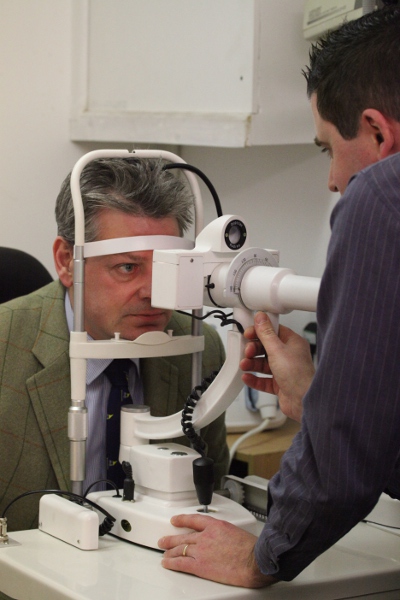The sixth annual National Eye Health Week (NEHW) will take place 21 – 27 September 2015. Once again, eye care charities, organisations and health professionals from across the UK are joining together to promote the importance of eye health and the need for regular sight tests for all.
Why are sight tests so important?
Many people think that a sight test is just about checking whether your vision needs correcting with glasses or contact lenses. But there are other important reasons to have regular sight tests. A sight test is a vital check on the health of the eyes and can detect a range of common eye conditions. Many of these, if found early, can be treated successfully, avoiding potential sight loss. A sight test can also spot other health conditions such as high blood pressure raised cholesterol, diabetes and increased risk of stroke.
Who needs a regular sight test?
Everybody! Sight tests should be part of everyone’s health care routine just like going to the dentist or having a smear test. And remember, children are never too young to have an eye check. Special tests have been devised to help optometrists examine even the youngest children.
How often should I have a sight test?
Most people should have their sight tested every two years, unless advised otherwise by their optometrist. Certain groups may need their eyes checked more frequently. These include: people with a family history of glaucoma, those aged 70+ and diabetics. Speak to your optometrist for individual advice.
What happens during a sight test?
Sight test appointments usually last 30 to 40 minutes. Your optometrist will tailor the examination according to your individual circumstance, taking into account factors such as your age, medical history and lifestyle. Tests performed during your eye exam might include: using a retinal camera or ophthalmoscope to examine the retina, blood vessels and nerves at the back of the eye, assessing your visual acuity by asking you to read letters from a Snellen chart and measuring the pressure inside your eye.
How much does a sight test costs?
Costs vary but normally start around £20. However, over 30 million people in the UK are entitled to a free sight test paid for by the NHS.
And, if you regularly use a computer at work you may be entitled to a test paid for by your employer.
Do I qualify for a free sight test?
Those entitled to a sight test paid for by the NHS include the following groups….
Aged 60 or over
Under 16 or under 19 still in full time education
Diagnosed as having diabetes or glaucoma
40 years of age or over with a close relative with glaucoma
Live in Scotland
Registered blind or partially sighted
Complex lenses wearers
Receive Income Support
Receive Income-based Jobseeker’s Allowance (not Contribution-based)
Receive Pension Credit Guarantee Credit
Receive Income based Employment and Support Allowance (not Contribution-based)
Awarded Universal Credit
Entitled to, or named on, a valid NHS tax credit exemption certificate
Named on a valid NHS certificate for full help with health costs (HC2)
People named on a HC3 NHS certificate may also get help.
Certain groups in Wales are also entitled to an extended eye examination. See www.eyecare.wales.nhs.uk for details.
You may also be entitled to a voucher towards the cost of any eyewear
prescribed. Ask your optometrist for details.
Your optometrist will also be able to advise on eligibility for NHS sight
tests at home.
www.visionmatters.org.uk


